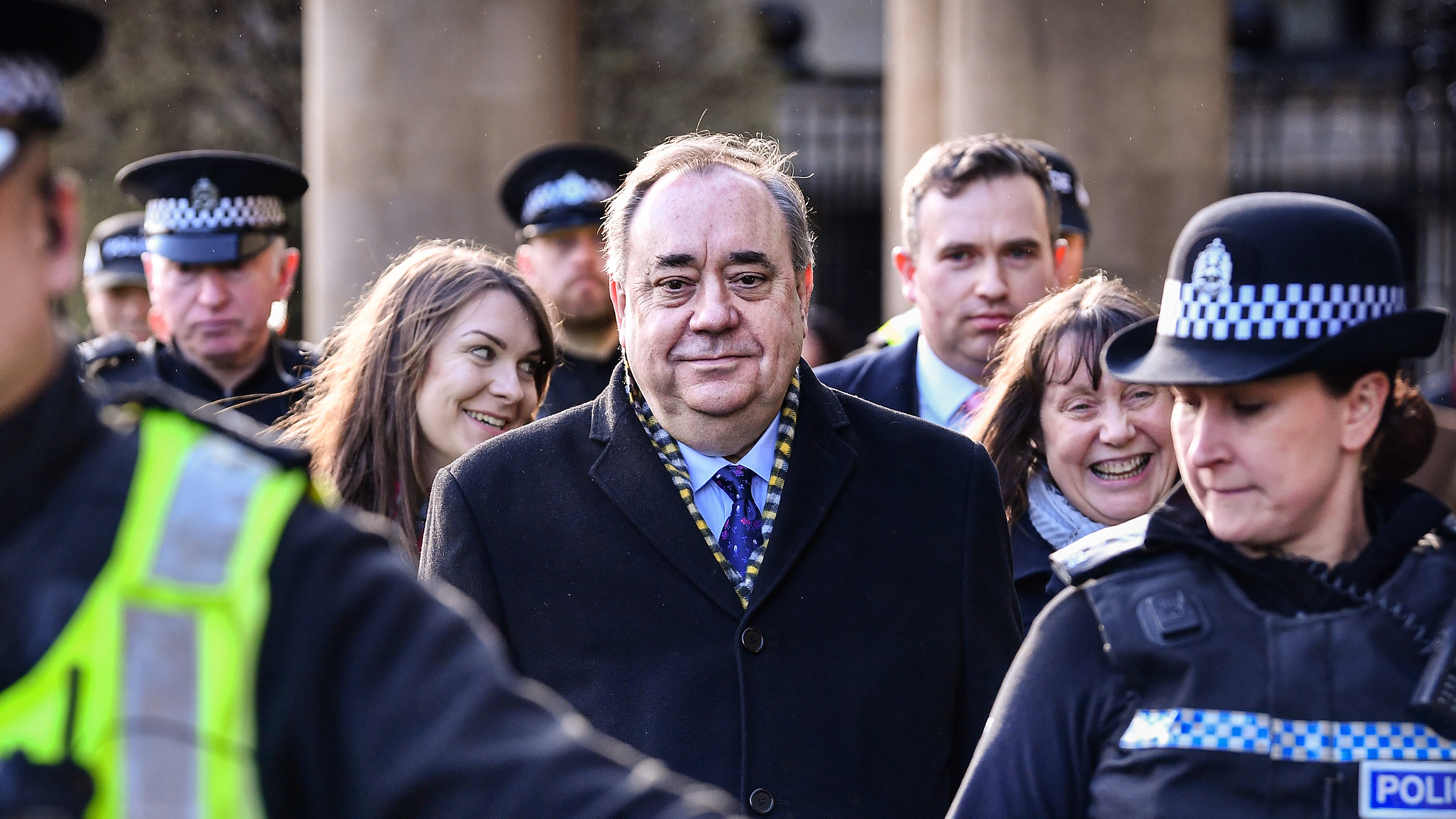Four things we learned from Alex Salmond’s ‘explosive allegations’ against Nicola Sturgeon
Former first minister claims in statement to Holyrood inquiry that SNP officials tried to have him imprisoned

A free daily email with the biggest news stories of the day – and the best features from TheWeek.com
You are now subscribed
Your newsletter sign-up was successful
Alex Salmond’s former Scottish National Party (SNP) colleagues made a “malicious and concerted attempt to banish him from public life”, according to his newly published submission to the Holyrood harassment inquiry.
Salmond is due to give evidence tomorrow to the committee investigating the government’s handling of harassment complaints against the former first minister - and says he has “documentary evidence” of a plot to destroy his reputation.
Nicola Sturgeon has played down what Politico’s London Playbook describes as a series of “explosive allegations” made by Salmond, telling reporters just hours before the submission was published that the claims had been put forward “without a shred of evidence”. Here are four things we learned about the alleged conspiracy from the near-8,000 word document.
The Week
Escape your echo chamber. Get the facts behind the news, plus analysis from multiple perspectives.

Sign up for The Week's Free Newsletters
From our morning news briefing to a weekly Good News Newsletter, get the best of The Week delivered directly to your inbox.
From our morning news briefing to a weekly Good News Newsletter, get the best of The Week delivered directly to your inbox.
1. Police complaints
SNP chief executive Peter Murrell, who is married to Sturgeon, is alleged to have “deployed senior figures to recruit and persuade staff members to submit police complaints” against Salmond, Sky News reports. Murrell has denied conspiring against his wife’s predecessor, while the SNP has echoed her in claiming that the allegation is “just more assertion without a shred of evidence”.
2. Jail plot
Salmond claims that “but for the protection of the court and jury system”, the plot against him could have resulted in not only the loss of his good name but also his freedom. In his written submission, he says that “a range of individuals within the Scottish government and the SNP” wanted to “damage my reputation, even to the extent of having me imprisoned”.
3. Secret text messages
The former first minister “alleges the strongest evidence of a conspiracy is contained in text messages in the evidence from this trial, which the Crown Office has refused to release for legal reasons”, The Guardian reports.
But despite that refusal, “he argues evidence already given to the committee clearly showed the Scottish government’s complaints policy was designed to snare him, by making its terms retrospective to include previous ministers”, the paper continues.
A free daily email with the biggest news stories of the day – and the best features from TheWeek.com
Sturgeon and Leslie Evans, the permanent secretary of the Scottish government, are alleged to have made the change to the draft policy at meetings in late 2017, when complaints about Salmond’s behaviour were first raised with the SNP.
4. Old friends
Salmond is “angry with his political protege” Sturgeon and “would be happy to see her drummed out of office”, writes the Daily Record’s political editor Paul Hutcheon. His evidence states that Sturgeon misled Parliament over the investigation, breached the ministerial code of conduct and made “wholly false” claims.
As Hutcheon notes, Salmond “knows more than anyone the gravity of these allegations which, if upheld, would warrant an immediate resignation”.
Chas Newkey-Burden has been part of The Week Digital team for more than a decade and a journalist for 25 years, starting out on the irreverent football weekly 90 Minutes, before moving to lifestyle magazines Loaded and Attitude. He was a columnist for The Big Issue and landed a world exclusive with David Beckham that became the weekly magazine’s bestselling issue. He now writes regularly for The Guardian, The Telegraph, The Independent, Metro, FourFourTwo and the i new site. He is also the author of a number of non-fiction books.